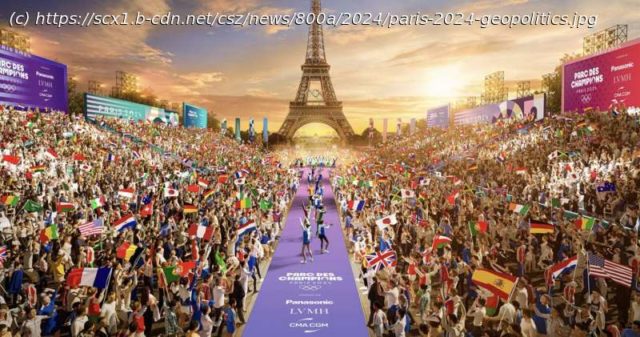When French historian and educator Baron Pierre de Coubertin founded the modern Olympics in 1894, he did so with a vision of promoting peace through sport. In reality, the Olympics have often reflected the geopolitics of the period.
When French historian and educator Baron Pierre de Coubertin founded the modern Olympics in 1894, he did so with a vision of promoting peace through sport. In reality, the Olympics have often reflected the geopolitics of the period.
Tensions flared July 24 when Olympic officials moved to crush U.S. probes into a Chinese doping scandal. Multiple wars rage, political instability is shaking France and anxiety mounts about the U.S. presidential election. Can Olympic victories translate into geopolitical wins?
« International sporting events have become thoroughly politicized, and given the chaos around the globe, we can expect many acts of protest and disruption both inside and outside the stadiums of Paris », said Robert English, an associate professor of international relations, Slavic languages and literature and environmental studies at the USC Dornsife College of Letters, Arts and Sciences.
« We live in an era in which reputation is central to the security of nations. A mega-event like the Olympics becomes a key platform to the host and participants alike », said Nicholas Cull, a historian and expert in public diplomacy, foreign policy and media at the USC Annenberg School for Communication and Journalism.
« International actors compete to showcase their own strengths and reveal the weaknesses of their adversaries, real or imagined. »
Though the International Olympic Committee maintains a strong position against the politicization of sport in its Olympic Charter, reality often intrudes.






